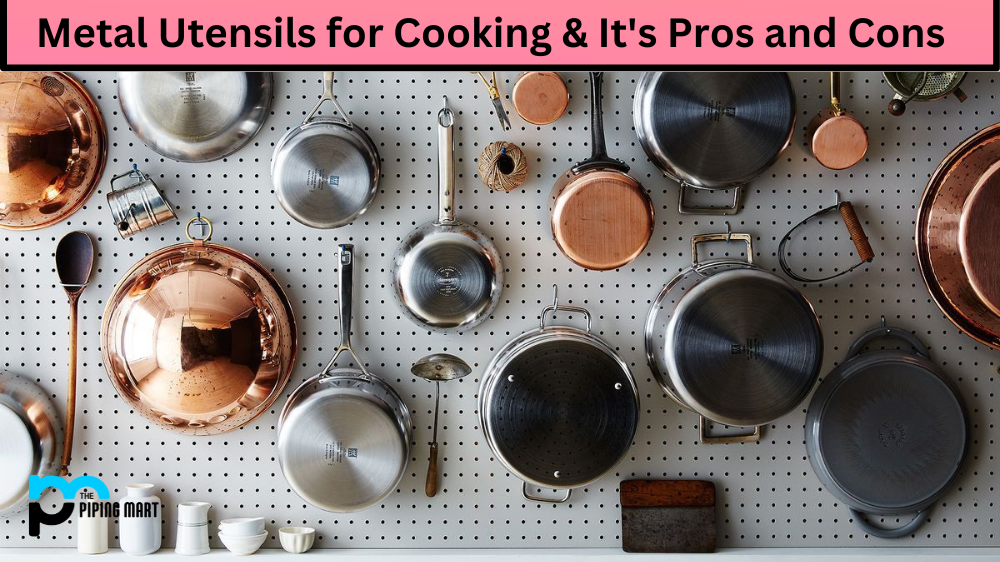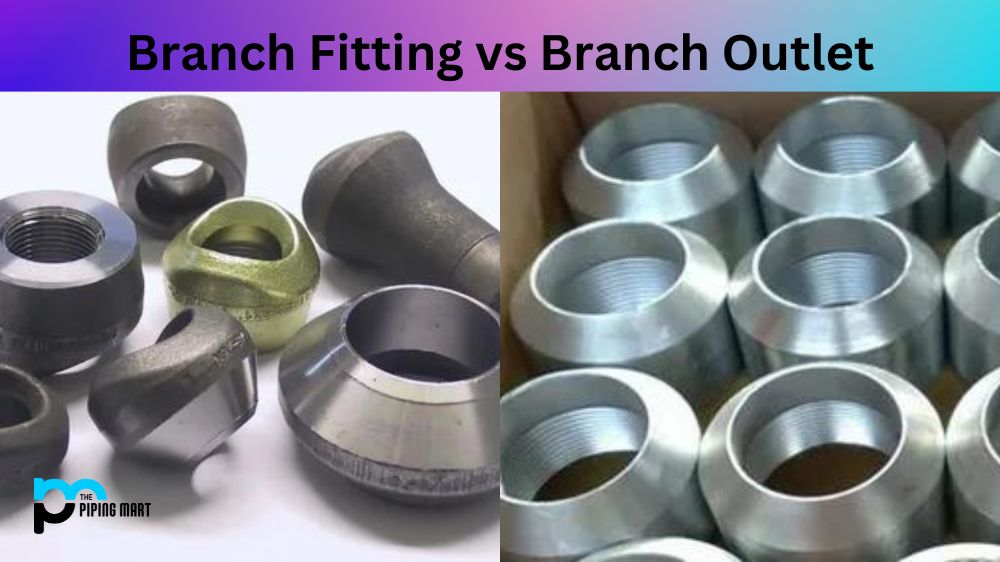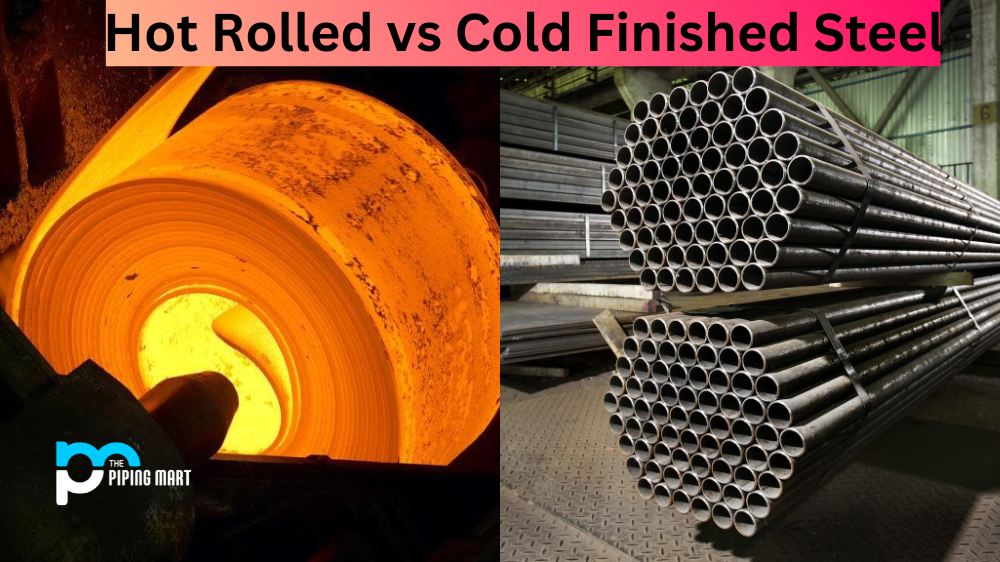Metal utensils have started to take off in recent years as people decide that trading their plastic cooking tools for metal is the healthier choice. Cooking with metal spoons, pans, and knives has increasingly been seen as a way to provide better nutrition while avoiding contact with potentially dangerous chemicals contained within cheaper materials. But how accurate are these claims? Do the switch from plastic to metal hold health benefits, or are they myths? In this blog post, we’ll explore the pros and cons of using metal utensils when cooking so that you can make an informed decision about what’s best for your cooking needs.
Stainless Steel
Stainless steel is a highly versatile material used in various applications, from kitchen cutlery to skyscraper construction. Its resistance to corrosion and staining sets it apart, making it a top choice for applications requiring durability and hygiene. A combination of iron, carbon, and various other metals such as nickel, chromium, and molybdenum, stainless steel is known for its strength and sleek appearance. The benefits of stainless steel extend beyond its practical applications; its clean lines and modern aesthetic make it a popular option for interior design and home decor as well. Whether you’re a professional chef or a home cook, an architect or designer, stainless steel is a material you’ll encounter time and time again.
Pros
- Stainless steel utensils are a popular choice for cooking enthusiasts and for a good reason. Unlike other materials, stainless steel is durable, long-lasting, and easy to clean.
- It can withstand high temperatures without warping or melting, making it the go-to option for high-heat cooking techniques such as searing and stir-frying. Additionally, stainless steel is non-reactive, meaning it won’t alter the taste or color of your food or react with acidic ingredients like tomatoes or citrus fruits.
- This makes it an ideal material for cooking a wide range of dishes, from tomato-based sauces to braised meats. With so many benefits, it’s no wonder that stainless steel utensils have become a staple in kitchens worldwide.
Cons
- One of the biggest cons is that they can’t distribute heat evenly as they retain heat for longer periods. This means you may have hot spots in your cookware, which can cause food to stick or burn.
- Another disadvantage is that stainless steel utensils are prone to scratches and damage over time, leading to rust and corrosion. This can be especially problematic for utensils frequently used in the kitchen.
Cast Iron
Cast iron is a durable and versatile material used for centuries in producing cookware, machinery, and construction materials. It is made by melting iron and adding a small amount of carbon, which gives it unique properties such as high heat retention, excellent seasoning capabilities, and the ability to form complex shapes. Cast iron has been a staple in kitchens worldwide for generations due to its ability to distribute heat evenly and produce a beautiful sear on meats and vegetables. Its durability makes it a popular choice for industrial machinery and building materials. Whether cooking a hearty meal or building a skyscraper, cast iron is essential for creating lasting and reliable products.
Pros
- Regarding cooking utensils, cast iron has been a go-to choice for generations. The benefits of using cast iron go beyond its sturdiness and durability.
- It’s a great heat conductor, which evenly distributes heat, resulting in a more consistent and delicious dish.
- Another pro is that it can be used on any stovetop or even in the oven, making it a versatile tool in the kitchen.
- Cast iron utensils are also easy to clean and maintain, and they can last a lifetime with proper care. Plus, they add a rustic charm to any kitchen and are perfect for presentation.
Cons
- One major downside is that cast iron takes longer to heat up than other materials, such as stainless steel or Aluminium. This can be inconvenient for those who want to cook a meal quickly.
- Additionally, cast iron can be quite heavy, making it difficult to manoeuvre and handle for some individuals.
- Another drawback is that cast iron is prone to rust if not properly cared for, which can cause the utensils to deteriorate over time.
- Lastly, cast iron can react with acidic foods, altering the taste and appearance of the dish. Despite its sturdy reputation, cast iron might not be the best choice for everyone’s cooking needs.
Aluminium
Aluminium is a lightweight, silver-white metal with multiple uses across various industries. It is the most abundant metal on Earth, making up about 8% of the Earth’s crust. Despite its abundance, Aluminium was once considered a precious metal, more valuable than gold or silver, due to the complex and expensive process required to extract it. It is widely used in beverage cans, aircraft construction, automobiles, electrical wiring, and even iPhones. Its non-corrosive nature and malleability make it a popular choice for many applications. Moreover, Aluminum is recycled more than any other metal, making it an eco-friendly option for industries and consumers alike. Overall, Aluminium is a versatile, durable, and essential metal that plays a significant role in our day-to-day lives.
Pros
- First and foremost, Aluminium is an excellent conductor of heat, ensuring that your food heats evenly and cooks to perfection. This quality also makes it suitable for cooking delicate dishes that require precise temperature control.
- Additionally, Aluminium is lightweight and durable, making it easy to handle and resistant to scratches and dents. Unlike other materials, it does not rust nor react with acidic ingredients, which means it’s safe for any type of cooking, even when cooking acidic foods like tomatoes or citrus fruits. Finally, cleaning aluminium utensils is a breeze as they are dishwasher safe and do not retain any food odours or flavors. All these benefits make aluminium utensils a must-have for every kitchen.
Cons
- One of the biggest drawbacks of using aluminium utensils is that they tend to react with acidic ingredients like tomatoes or lemon, which can cause the metal to leach into the food being cooked. This can harm our health, especially if we consume such food regularly.
- In addition, aluminium utensils are not very durable and can easily get scratched or dented, forming hot spots that can result in uneven heating during cooking.
- Furthermore, they are unsuitable for high-heat cooking, as they can warp over time. Considering these cons, it is important to be careful while selecting cookware for our kitchens and opts for safer, more durable alternatives.
Brass
Brass is a material that has been in use for centuries. It is a beautiful alloy made mostly of copper and zinc, which gives it a warm golden colour. The metal has long been appreciated for its versatility and durability, making it a popular choice for various items, from musical instruments to home decor. The unique properties of brass also make it highly resistant to corrosion, which is why it’s frequently used in marine environments. Beyond its practical uses, brass has a timeless appeal that has cemented its place in history and continues to captivate us today.
Pros
- As we become more conscious of our everyday choices’ impact on the environment, it’s no surprise that many are turning to brass utensils for cooking. Not only are they durable and long-lasting, but these utensils can also add a touch of elegance to any kitchen.
- Brass is a great heat conductor, allowing for the even distribution of heat throughout your cookware.
- Additionally, brass is a natural antimicrobial, which means these utensils are perfect for anyone looking for a more sanitary option in the kitchen.
- On top of all these benefits, brass utensils are also relatively low maintenance – just a quick hand wash and dry is all that’s needed to keep them in top condition.
Cons
- Brass is a reactive metal that can interact with acidic foods, such as tomatoes or citrus, causing it to leach into food and potentially give off a metallic taste.
- Additionally, brass utensils can tarnish and corrode over time, making them difficult to maintain and potentially harmful if not properly cared for.
Copper
Copper is one of the most utilized metals in the world. Known for its excellent conductivity, the reddish-brown metal is used in almost every aspect of our lives. From electrical wiring to plumbing and roofing, copper’s versatile properties make it indispensable. It is also widely used in producing coins, statues, and other decorative items due to its durability and beautiful hue. Copper has been mined for thousands of years and has played a significant role in shaping human history. Its importance in our daily lives cannot be overstated, and it continues to be a valuable resource today.
Pros
- Copper is known for distributing heat evenly, making it an excellent material for cooking utensils. In addition to its functional benefits, copper cookware also adds a touch of elegance to any kitchen.
- Copper utensils are not only stylish but also durable and long-lasting.
- Copper is also easy to clean and maintain, making it a practical choice for busy home cooks.
- Another benefit of copper cookware is that it is free of harmful chemicals and toxins often found in other materials.
Cons
- While copper is a popular material for cookware due to its excellent heat conductivity, it has drawbacks. One of the main cons of using copper utensils in cooking is that they can react with acidic foods and leach into the prepared dish. This can potentially harm one’s health if consumed in excess amounts.
- Additionally, copper cookware requires regular maintenance as it can easily tarnish and discolour over time. Finally, copper utensils are more expensive than other materials, such as stainless steel, making them less accessible to those on a tight budget.
Iron
Iron metal is a versatile and essential component of many cooking methods. Iron metal is popular for producing delicious meals, from frying pans to griddles. Iron metal is able to conduct heat evenly across its surface, ensuring your food is cooked to perfection. In addition, iron metal is naturally non-stick, which means you can use less oil or butter in your cooking. This makes it an ideal choice for health-conscious individuals and those looking for a low-maintenance cooking surface. Whether you’re a professional chef or a home cook, iron metal is a must-have tool in your kitchen. Give it a try and discover how it can elevate your cooking game!
Pros
- Iron metals are durable and can last for years, making them worth the investment. Secondly, they are non-toxic, meaning they won’t rust or corrode, and there is no concern about harmful chemicals leaching into your food.
- Iron metals retain and distribute heat evenly throughout the pan, ensuring your food is perfectly cooked. Lastly, they are versatile and can be used on all stovetops, including induction.
Cons
- Firstly, it tends to rust and corrode over time, making it difficult to clean and ultimately rendering it unusable.
- Additionally, iron can react with certain foods and alter their taste or colour, particularly acidic ingredients like tomatoes or vinegar. This can be detrimental to the overall flavour profile of a dish and negatively impact the dining experience.
- Lastly, iron cookware can be quite heavy and difficult to maneuver, making it unsuitable for those with physical limitations or who prefer lightweight kitchen tools.
Conclusion:
Choosing the right utensils for cooking is as important as choosing the right ingredients. Fortunately, there are plenty of healthy options to choose from. Stainless steel, cast iron, glass, bamboo, and copper are all great materials that can help you cook healthily and safely. So next time you’re in the market for new cookware, consider these options and choose utensils that will benefit your health in the long run.
Sakshee is a talented blogger, with a particular focus on the Business and Metal Industry. She is passionate about sharing her insights on various metal products and helping professionals to make a better decisions.




